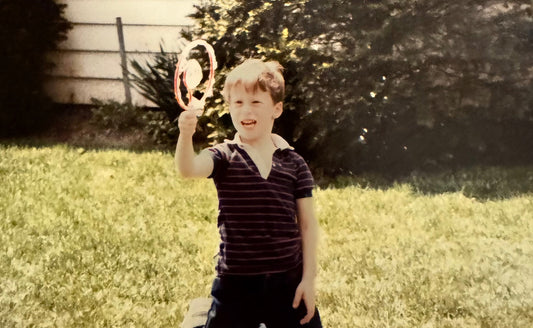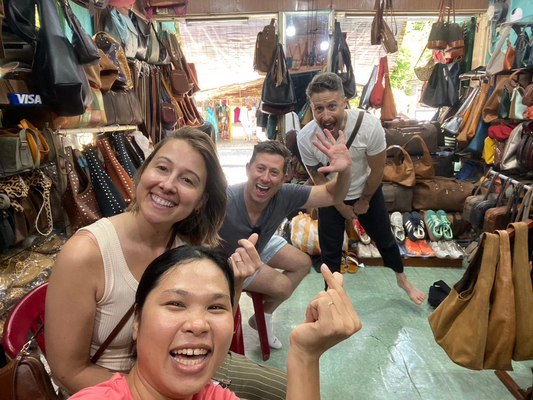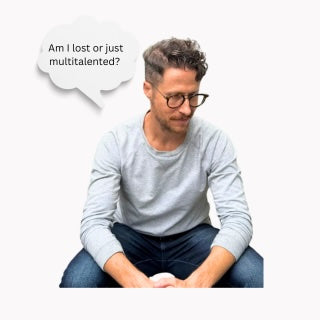
A Map or a Compass? The Rise of Coaching in the Age of AI and the Decline of Traditional Consulting
Coaching in the age of AI is now.
I made a career out of helping people and teams navigate big decisions. From growth plans and change management strategies to rebranding efforts and digital transformation efforts, you name it. I spent years building those maps.
But here’s the truth: consulting has reached its point of diminishing return.
That’s not an easy thing for me to admit. It’s not a jab at consultants. It’s a confession from someone who used to be one.
Because now? AI can give you the map.
Seriously. Whether you're looking for a capacity-building strategy, a market entry plan, or a re-org model, tools like ChatGPT and other AI-powered strategy platforms can produce eerily accurate recommendations in seconds.
Things that used to take a team of consultants weeks to deliver are now simply available. For everyone.
This isn’t fear-mongering. This is reality.
The consultant can no longer gate-keep the map. And maybe that’s a good thing.
The Limits of Consulting in the Age of AI
We are entering what I believe could be the golden age of coaching, but only if we respect the distinction between the coaching and consulting.
The two are not interchangeable. If a consultant hands you a map, a coach helps you trust your compass.
Consultants provide solutions.
Coaches create the space for people to uncover their own.
Consultants tell you what to do.
Coaches help you become the person who knows what to do under pressure, in motion, and when it really counts.
The two disciplines require fundamentally different skill sets, temperaments, and mindsets. And the data tells us being a consultant doesn’t prepare you to be a coach. In fact, in many cases, it makes it harder. I know this because I had to unlearn a lot.
My Shift from Consulting to Coaching in the Age of AI
When I first made the transition from consultant to coach, it was disorienting. Coaching required a level of restraint I wasn’t used to. I had to stop solving and start listening. I had to stop proving and start witnessing.
To be a coach is to be present, not to be the smartest person in the room.
It’s like telling a firefighter to stop running into the flames and instead hand the hose to someone else. That’s not just a shift in behavior. That’s an identity crisis.
But what I’ve learned is this: coaching is a discipline. It requires humility, emotional regulation, and the ability to create conditions where change becomes inevitable.
Coaching isn’t forever. But when done well, it can spark something that lasts a lifetime.
How AI is Changing Coaching and Consulting
AI is coming for coaching too. That’s a reality we can’t ignore.
There are now AI platforms that can track emotional intelligence, analyze your personality, summarize your behavioral blind spots, and even advance habit changes.
This was the kind of insight coaches used to guard closely. Now it’s automated. But what AI can’t do? Shake someone up.
AI can’t look someone in the eyes and ask the question that stops them cold. It doesn’t linger in silence long enough for the truth to rise. AI lacks the capacity to hold space.
AI can’t earn trust. And it can’t disrupt someone’s patterns in real time. A great coach is not a mirror. A great coach is an intervention.
The best coaches help you see what AI can’t: your blind spots, your avoidance patterns, and your self-sabotage to name a few. They help you act with urgency.
They help you make changes swiftly and sustainably. And then, yes, they give you the tools to sustain it on your own.
That’s why I like to say: "a coach helps you coach yourself objectively, confidently, swiftly."
Coaching in the Age of AI: A New Role for Human Insight
Look, this isn’t a condemnation. This is a reckoning with myself, with the industry I was a part of, and with the evolution that’s already happening whether we like it or not.
I made a career out of providing something we no longer need in the same way. And that’s okay. If we’re really committed to progress, we have to let go of models that have outlived their usefulness. That includes consulting as we’ve known it.
If you’re still hiring consultants to build maps you could’ve generated with AI, you may be solving the wrong problem. The better investment? Hire someone who can help your team trust themselves with the map they already have.
As for the fate of coaches? AI will clear the field of hacks, and the cream will rise to the top; coaches like Dr. Julie Gurner. I’d like to think I’m on that list too.
The Leadership Parallel
This moment demands a new kind of leadership—not one rooted in certainty, but one rooted in clarity.
Long gone are the days when the value of a leader was in having all the answers, as seen in recent calls for human-centered leadership.
The leaders who will thrive now are those who can create the conditions for better questions and better self-trust inside their teams.
AI can help you scale. But it won’t make your people feel seen, safe, or understood. That’s still your job. And it’s never been more valuable.
Final Words
If you’re a founder, a leader, or a team wondering whether you need another roadmap, I encourage you to pause and look around. You probably already have it. At Hiddn, we help leaders and teams learn to trust their internal compass.
Have you worked with a consultant before and walked away with nothing but a 70-slide deck? If that’s the case, and the deck didn’t lead to any real shift in your behavior, you’re not alone.
I’ve been there. So, I can tell you with conviction: there’s a better way.
The coaching world is evolving fast. In contrast to static strategies, the best coaches are evolving with it. Instead of handing you insights that gather dust, they help you move confidently and meaningfully.
Remember: the map? It’s everywhere now. But the compass? That still has to be earned.




